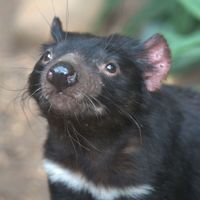Evolutionary genetics

Archaea Sport Structures that Shuttle Genes Among Microbes
Natalia Mesa, PhD | Nov 16, 2022 | 3 min read
Researchers find so-called integrons, previously known only in bacteria, in their distantly related microbial relatives.

Corals Upend Longstanding Idea About Genetic Inheritance
Natalia Mesa, PhD | Sep 1, 2022 | 4 min read
Most animals can’t pass on mutations that arise spontaneously throughout their lives—but Elkhorn corals can.

Phyla of Tiny Filter Feeders Find a New Spot on the Tree of Life
Alejandra Manjarrez, PhD | Jul 6, 2022 | 5 min read
A new study using fairly complete genetic datasets of two phyla of small suspension feeders (Ectoprocta and Entoprocta) reopens the debate on the phylogenetic relationships between them and other animals.

Ana Marija Jakšić Shapes Fruit Fly Brains
Chloe Tenn | Apr 18, 2022 | 3 min read
The Swiss Federal Institute of Technology Lausanne evolutionary neurobiologist is using Drosophila to investigate how organisms adapt to novel environments.

Fruit Flies Evolve in Time with the Seasons: Study
Natalia Mesa, PhD | Mar 17, 2022 | 5 min read
Researchers find that evolution can operate on extraordinarily fast timescales.

Essential Genes Protected from Mutations
Dan Robitzski | Jan 25, 2022 | 6 min read
Epigenetic structures appear to reduce the rate of changes in genes essential for survival and reproduction, a study finds, challenging the notion that mutations are evenly distributed throughout the genome prior to selection.

Gene Offers Clue to How Human Labor Starts
Christie Wilcox, PhD | Aug 1, 2021 | 2 min read
Genes associated with preterm birth and protecting the fetus from the mother’s immune system appear to be regulated by HAND2.

Evolutionary Biologist Richard Lewontin Dies at 92
Annie Melchor | Jul 8, 2021 | 3 min read
The Harvard University evolutionary biologist pioneered the use of protein gel electrophoresis to study molecular genetics.

Deadly Facial Tumors Spur Tasmanian Devil Evolution: Study
Christie Wilcox, PhD | Jun 16, 2021 | 6 min read
The largest study to date of the animals’ genetics provides robust evidence that they are adapting to survive a highly lethal, contagious cancer scientists feared would cause their extinction.

Whole-Genome Data Point to Four Species of Giraffe
Ruth Williams | May 6, 2021 | 4 min read
The genome sequences of 51 giraffes from all over Africa contribute to the latest attempt in an ongoing pursuit to pin down a species number.

Elusive Asgard Archaea Finally Cultured in Lab
Nicoletta Lanese | Aug 12, 2019 | 3 min read
The 12-year-long endeavor reveals Prometheoarchaeum as a tentacled cell, living in a symbiotic relationship with methane-producing microbes.

Lords of the Flies
Aggie Mika | Jun 19, 2017 | 5 min read
Biologists’ walk in the woods sparks the creation of a masterful fruit fly field guide.
